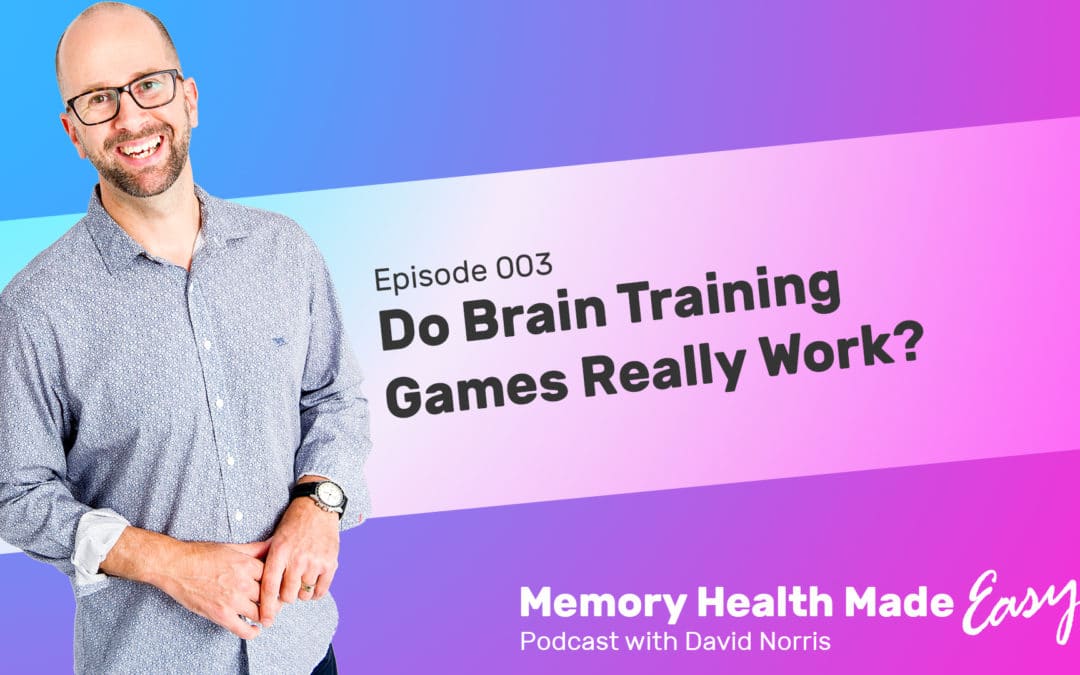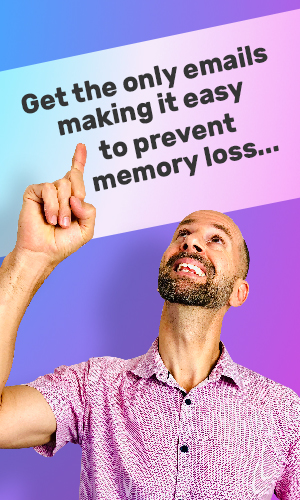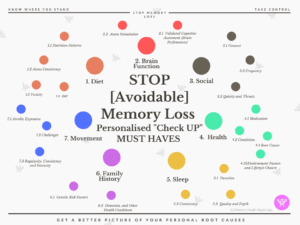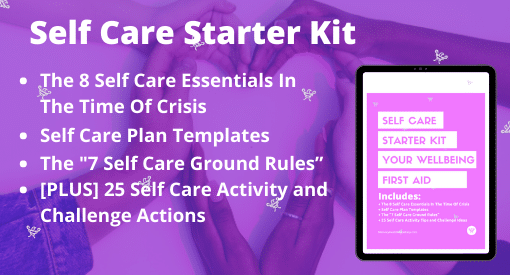iTunes | Google Play | Libsyn | Spotify | Stitcher | TuneIn Radio | YouTube | Twitter | Facebook
Bonus Material: 9 Things Your Brain Needs to Thrive Cheatsheet
From board games to puzzles and handheld games, we all look for ways to improve our memory and logic, response time and overall mental functioning. With the surge of brain training games that are conveniently accessible in our smartphones, it can be worth asking if they really hold any cognitive benefit.
In today’s episode of the Memory Health Made Easy podcast, we’re going to explore and clarify some things about brain training games. We’ll talk about the eight-point checklist that can help us identify whether brain training is worth our time and money. In addition to that, I will also introduce the “narrow” and “broad” effects.
To know more about the real-life benefits of brain training games and what you can expect from them, keep your ears open and make sure that you tune in to the show!
To Grow Your Brain Skills To Their Potential You Need These 9 Things In Your Life

About The Host
David Norris is an occupational therapist who has been in this practice for 20 years.
He has dealt with a lot of clients who seek help with their memory loss problems.
David began asking himself about how these people can get ahead of these problems.
It is then that he started teaching his clients how to improve their brain health to prevent memory loss.
David Norris is also the director and founder of Occupational Therapy Brisbane.
How Brain Training Games Work
Murky Waters Around the Cognitive Science of Online Games
- These games often have a cost involved.
- We rely on the validity of how well these exercises are going to translate to improved cognitive fitness.
Narrow & Broad Effects of Brain Training
- The exercises in these apps have a narrow effect; in other words, it doesn’t go wider to other cognitive skills.
- For example, if we practise attention, it’s not going to translate to insight, awareness and judgement.
- Broad effect is the desired effect that translates to other cognitive skills and in different domains of life.
Eight-Point Checklist: Determining Whether Brain Training Is Worth Your Money and Time
- Is there an established evidence history?
- Does it establish a personal baseline for you?
- Are they continually challenging?
- Does it target a specific skill set?
- Is it novel and engaging?
- Has it got auditory and visual components?
- Does it track your performance over time?
- Does it give you feedback on areas to focus on?
Dual N-Back: The One Brain Exercise You Should Do
- Research findings are split about the effectiveness of these programmes.
- However, unlike many other training exercises, Dual N-Back, created by Susanne Jaeggi and her team in 2008, has been proven to transfer training results to other brain activities.
- A study done by John Hopkins University showed a 30% improvement in working memory using brain training. The optimal time to do the training is 1 to 2 hours before sleep.
- To maintain the cognitive gains, it’s essential to come back and dose up on this particular exercise over time.
- Make sure that at the core of what you’re doing, you’ve got good sound exposures to the Dual N-Back exercise.
Can Brain Training Improve Memory?
- Science proves brain training games can be an essential part of your toolkit in reducing the risk of memory loss.
- However, it is vital to look at the biological risk factors such as sleep, exercise, eating, social relationships and stress management, among others.
If you have any questions or insights, please don’t hesitate to leave a review below to help us reach more people in starting a discussion about memory health. Subscribe to the podcast to stay in touch! Thanks for listening!
Grab a free copy of the Memory Health Toolkit today and start strengthening your brain building. You can also connect with me on LinkedIn or Twitter.







